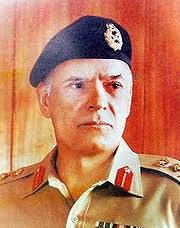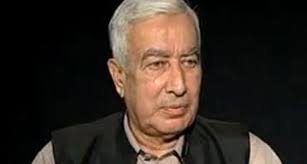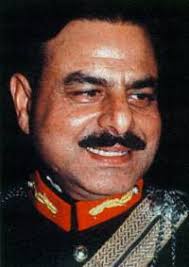
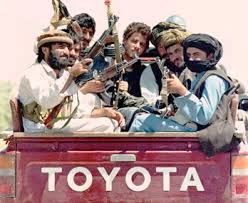
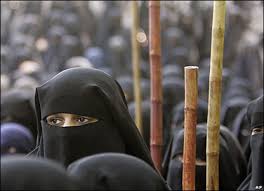
By Nadeem F. Paracha
Saturday, 21 Nov, 2009
Released today (Saturday 21 November), the Pakistan British Council’s hefty report titled, Pakistan: The Next Generation, encapsulates the economics, demographics and, more importantly, the opinions of the youth of Pakistan.
The report suggests that Pakistan is in a distinct situation where it can explore what is called the ‘demographic dividend.’
This means that the country is going through a period in which there is a positive ratio of productive youth — or currently there are more industrious youth than dependants.
According to the report the window of opportunity in this respect opened in 1990, but unfortunately the country has done nothing to exploit this opportunity.
Being perhaps the first truly representative survey and report of its kind in the country, it divulges that merely 15 per cent of the Pakistani youth believe that the country is headed in the right direction.
Accurately capturing the identity dilemma the youth of Pakistan has been going through, especially after the tragic 9/11 episode and its fallout in Pakistan, the report sees the country’s youth to be passionately inclined towards nationalism but having very little trust in national or local government, the police and even courts, in spite of the reinstatement of the celebrated senior judiciary that was dismissed by the Musharraf dictatorship in November 2007.
About three-quarters of the Pakistani youth define themselves as being Muslims first and then Pakistani. Fourteen per cent see themselves as Pakistani citizens first.
The democratic dividend window that opened in 1990, according to the British Council report, is set to close sometime in 2045. This means those at the helm of economic and governmental affairs now have 35 years or so to stem the waste and start devising policies in which the country can harvest the political, social and above all, economic benefits that come associated with this opportunity. The report predicts that the positive consequences of wisely exploiting this opportunity may give Pakistan an economic growth increase by a fifth by 2030.
Also in the report are the variety of opinions held by the Pakistani youth on matters of hope, fear, religion, education and international politics.
Not surprisingly, a healthy 92 per cent of the youth believe in the importance of education. However, even though the current bout of democracy in the country is hardly two years old, there are already growing signs of disillusionment with democracy within the youth. According to the report, only a third of those surveyed believed that democracy is the best system for the country.
This is an alarming finding, especially with the number of disastrous military regimes that the country has suffered and the proliferation of alternative faith-based systems being flaunted by conventional religious parties and the largely mythic-political ones propagated by clandestine extremist groups.
Thus, more alarming becomes the report’s finding in which it sees about 60 per cent of the country’s youth having faith in the military and around 50 per cent having similar trust in religious seminaries (madrassahs), which, in the last many years have come under scrutiny from the government and the state for both propagating and initiating extreme strains of Islam.
The bi-polar make-up of the Pakistani youth is further highlighted when the report suggests that the young generation by and large is civic minded. This generation insists that the primary purpose of education is to produce good and productive citizens.
When questioned about the reasons behind the recent spat of terrorist and other violence in the country, the respondents point the finger at ‘injustice’ (30 per cent); and ‘economics conditions’ (28 per cent).
Again, not surprisingly, a large number of young men and women also blamed the international community of ‘interfering in the affairs of the country,’ and for ‘demonising Pakistan.’
The truth is, if a majority of a country’s youth have more faith in institutions that have been largely responsible for the political, social and economic disasters that the country has faced for many years (the military and the madrassahs), it will be very hard for the international community not to exhibit any alarm or concern, especially if the same country also has a nuclear arsenal.
But the British Council report is not all that concerned by this dilemma. Instead in its concluding remarks, it is actually hopeful and advises the state and the government to tap into the nationalism and civic mindedness of the youth because we still have about 35 years to convert the economic, cultural and political potential of our youth into something that can rise above cynicism and a forlorn attitude, and play a more positive, productive and inspired role.
Around 2,500 young men and women (writers, journalists, students, NGO workers) were involved in the writing and preparation of this report that can go a long way in triggering some constructive debate and, as British Council’s Fasi Zaka hopes, ‘renew an interest in a much neglected subject.’ Source
Read more...














